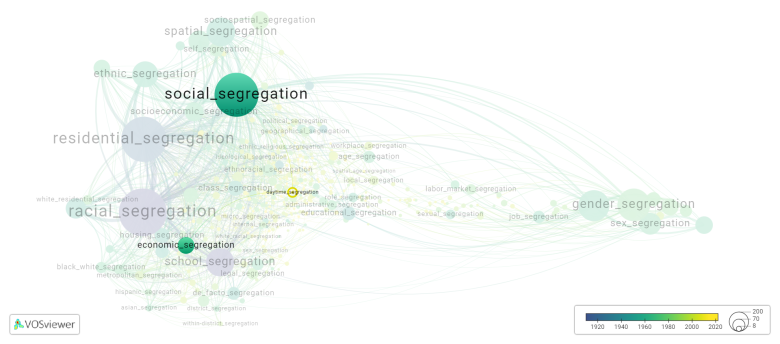Daytime segregation
Date and country of first publication[1][edit | edit source]
2018
Sweden
Definition[edit | edit source]
Daytime segregation refers to the separation or division of individuals based on certain characteristics such as race, gender, age, or socioeconomic status during daytime activities or events. This can occur in various settings such as schools, workplaces, and public spaces, leading to unequal opportunities and limited interactions between different groups of people. Daytime segregation can perpetuate social inequalities and prevent individuals from fully participating in society. Efforts to promote integration and inclusivity during daytime activities are important in creating a more equitable and diverse environment.
See also[edit | edit source]
Related segregation forms[edit | edit source]
Daytime segregation is frequently discussed in the literature with the following segregation forms:
social segregation, economic segregation

This visualization is based on the study The Multidisciplinary Landscape of Segregation Research.
For the complete network of interrelated segregation forms, please refer to:
References[edit | edit source]
Notes[edit | edit source]
- ↑ Date and country of first publication as informed by the Scopus database (December 2023).
At its current state, this definition has been generated by a Large Language Model (LLM) so far without review by an independent researcher or a member of the curating team of segregation experts that keep the Segregation Wiki online. While we strive for accuracy, we cannot guarantee its reliability, completeness and timeliness. Please use this content with caution and verify information as needed. Also, feel free to improve on the definition as you see fit, including the use of references and other informational resources. We value your input in enhancing the quality and accuracy of the definitions of segregation forms collectively offered in the Segregation Wiki ©.
Daytime segregation appears in the following literature[edit | edit source]
Östh J., Shuttleworth I., Niedomysl T. (2018). Spatial and temporal patterns of economic segregation in Sweden’s metropolitan areas: A mobility approach. Environment and Planning A, 50(4), 809-825. SAGE Publications Ltd.https://doi.org/10.1177/0308518X18763167
